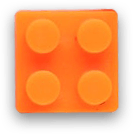Want to create interactive content? It’s easy in Genially!
Daily routine
JUAN SEBASTIAN ROJAS ZABALA
Created on February 8, 2024
Over 30 million people create interactive content in Genially
Check out what others have designed:
Transcript
Ingles
Simple present : Daily routines
What time
Reglas para tercera persona
How to write about your simple daily routine:
Pág. XX
Pág. XX
Pág. XX
Pág. XX
How to write about your simple daily routine:
Preguntas con Do and does
Use adverbs of frequency.
. X
Pág. XX
Pág. XX
Pág. XX
eglas para tercera persona
Índice
Next
Forming the present simple tense is simple – use the base form of the verb. I play… You work… They swim…
How to write about your simple daily routine:
Remember – if you are using the third person singular (he/she/it) you need to add s to the verb. He plays… She jumps… It kicks…
How to write about your simple daily routine:
Reglas para 3 personas
- ·Normalmente se forma añadiéndole al verbo una –s final.
- I play (yo juego) → He plays (el juega).
Formas o estructura
+info
Existe otra excepción para los verbos terminados en -y. Cuando hay una vocal antes de la -y, debes conservar esta y adicionar la -s.
El present simple y la tercera persona
Regla 1: En las oraciones afirmativas del present simple a todos los verbos se les adiciona una -s al final. No olvides que, al encontrarse en oraciones negativas e interrogativas, la -s no debe ponerse.
Regla 3:
To be es el verbo irregular más usado en el inglés, por lo que te recomendamos estudiar y aprender todas sus formas de conjugación
Regla 2:
En la tercera persona, does es el auxiliar que debes usar; sin embargo, do se usa para la primera y segunda persona del singular y plural.
Regla 4:
Para usar el presente simple con los modal verbs (can, must, may), debes tener en cuenta que existen dos excepciones. Nunca debes agregarles -s ni -es.
I always clean my teeth before I go to school. I sometimes have hot chocolate in the evening.
always, usually, often, sometimes, occasionally, hardly ever, rarely, never
Use adverbs of frequency.
Lisa is a student at university. Here is her daily routine. I always wake up at 7:00 in the morning. I usually have breakfast at 7:30. I catch the bus to university at 8:00. I usually start studying at 8:30. I always have lunch at noon. I finish university at 4:15 in the afternoon. I sometimes go to the cinema with my friends in the evening. I usually have dinner with my family at about 7:00 in the evening. I never go to bed before 11 o’clock. I often go to bed at midnight.
Example
Do you wake up at 5 every day? Do they usually go to the movies? Does she play the piano every morning? Does he usually watch Netflix during the morning? What time do we usually get home? Where do you usually go after work? Do you go camping every weekend? What do you usually eat for breakfast? Do you usually eat cereal for breakfast? Where do you usually eat lunch?
Preguntas
Preguntas con What time?
Estas son algunas preguntas sobre la rutina diaria en Inglés con la expression “what time?” What time do you usually wake up? What time do you usually take a shower? What time do you usually have lunch? What time do you usually have dinner? What time do you usually go to bed? What time does she make breakfast? What time does he go to work? What time do they get back home?
What time and do or does
PRESENTACIÓN LOREM IPSUM DOLOR
Espero hayas entendido dicho tema
¡Muchas gracias!
00:10
00:05
00:15
00:10
00:05
00:08
Quiz interactivo
00:10
00:20
Actividad
En esta actividad van a realizar un escrito con la rutina diaria teniendo en cuenta lo visto en clase todavia no lo van a entregar, por favor no borrarlo ni votarlo En el icono de sonido a lo ultimo pueden ver el ejemplo









